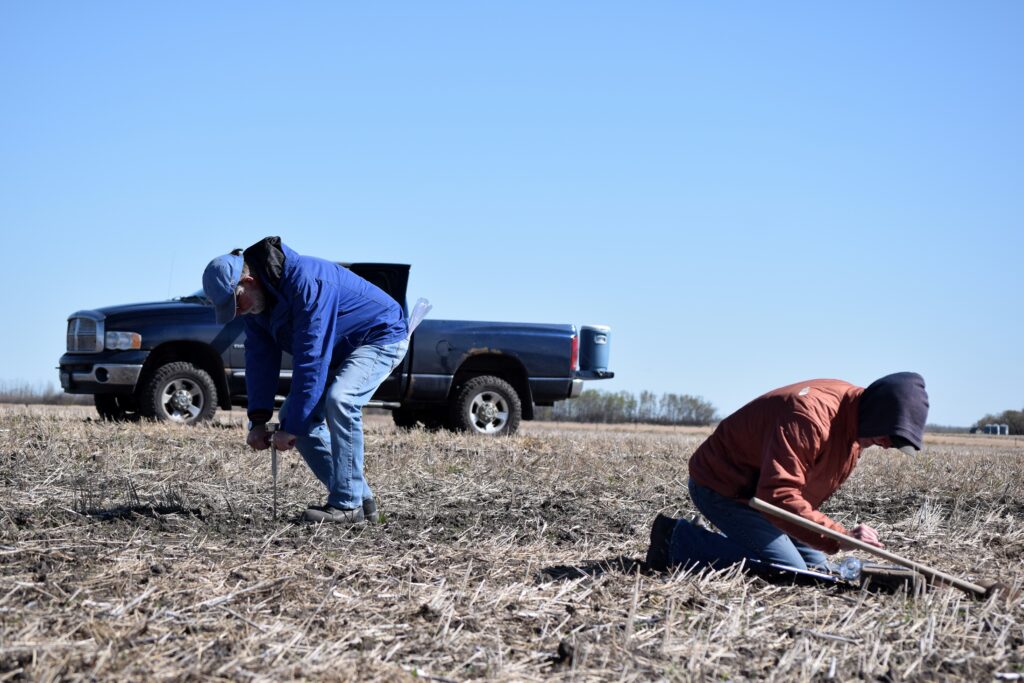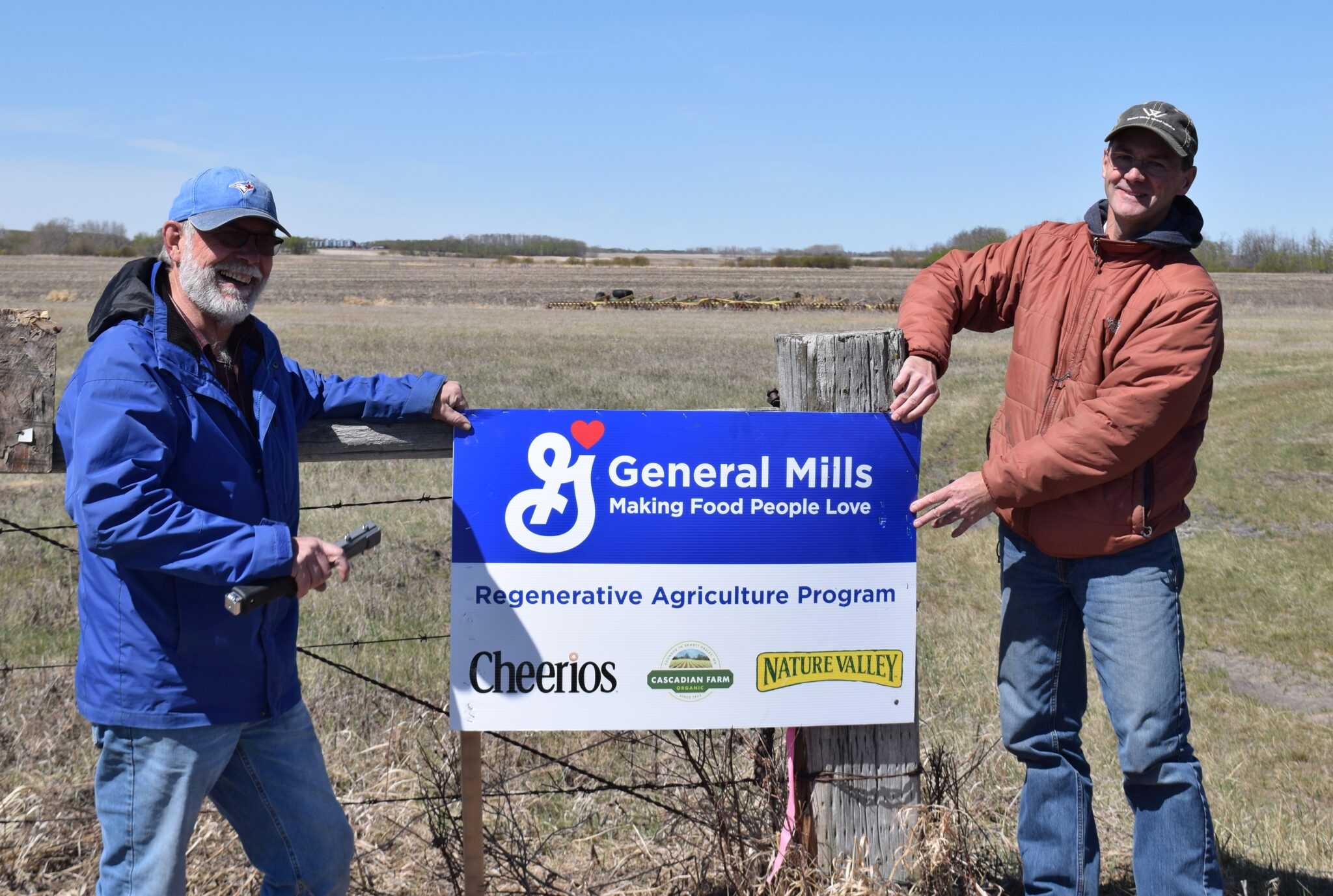In March of 2019, General Mills Inc. committed to “advancing regenerative agriculture on one million acres of farmland by 2030.” Like other industries, agriculture contributes to high levels of greenhouse gas emissions and water consumption. While General Mills doesn’t own farmland themselves, agriculture does account for 60% of their supply chain emissions across everything from farm to fork to landfill. As farmers are the foundation to their supply chain, this opens an opportunity to lead the way in combating climate change by supporting farmers in implementing regenerative agriculture principles in their own operations.
Over two years since making their commitment, General Mills has led several different pilot strategies to grow regenerative agriculture adoption across farms in the American midwest and Canada. After joining OpenTEAM in 2020, General Mills has been able to work with a diverse group of organizations across the food, agriculture, and technology sectors to bring to life important aspects of their strategies and use OpenTEAM’s tools and network to reach their goals.
“We have lots of different pilot strategies out there in these different sourcing regions, just trying to see what works, what’s really helpful and meaningful for farmers as they’re trying to transition to these regenerative systems,” says Steve Rosenzweig, a soil scientist at General Mills that combines his knowledge of crop, soil, and social sciences to help meet the company’s sustainability commitments.
General Mills identifies six core principles of regenerative agriculture as understanding the context of each farm and ranch, minimizing soil disturbance, maximizing plant diversity, keeping the soil covered, maintaining living roots year-round, and integrating livestock. These principles ultimately build soil carbon for healthier crops and a cleaner atmosphere.
Farmers that supply key ingredients for General Mills products including oats, wheat, corn, dairy and sugar beets are applying such strategies to their own operations. Over 70 farmers in North Dakota, Canada, and Kansas are receiving coaching, educational opportunities, soil sampling, and bird and insect biodiversity monitoring across their farms to contextualize regenerative agriculture for their operations.
A key challenge to measuring the impact these initiatives have on the farm and the environment is actually securing data from farmers themselves. “It’s really difficult, just from a technical standpoint, to get what’s in their head about what they did on their farm into a format that our research partners can use to make sense of the environmental data they’ve collected,” says Rosenzweig. As General Mills works to address this, they are using tools within the OpenTEAM tech ecosystem such as farmOS and SurveyStack to keep track of the management changes farmers are implementing, helping them to understand what practices are driving the outcomes they’ve observed.
Recently, General Mills engaged with the OpenTEAM community further by joining a collaborative of organizations led by Our Sci to co-design and develop a “Digital Coffeeshop” for farmers. This will help farmers to better leverage their data to create benchmarks and build networks with other farmers. As this project continues in the development phase, “We’re starting to realize some of the visions of OpenTEAM, that this data has multiple uses and it becomes easier to help the farmers get value from their data,” says Rosenzweig.

From open community participatory research to creating a community of regenerative farmers across the General Mills supply chain, the OpenTEAM ecosystem has built a foundation that supports farmers in their ambition to apply these changes on their own farms and even be compensated for applying regenerative farming principles. In October, General Mills made the first payments to farmers as a result of a collaboration with the Ecosystem Services Market Consortium. After months of soil sampling, managing data, and cleaning that data for modeling and verification, farmers are getting paid for the environmental benefits they are cultivating.
“This is one of the first pilots for this market in the whole country. There was a lot we had to figure out, from soil sampling to the payment,” says Rosenzweig, “So, I set their expectations really low…I think they were all pleasantly surprised that we actually managed to get all the way to the payment process, because it has been a long journey for them as well.”
As General Mills continues to strategize ways for farmers to adopt regenerative farming principles, they recognize the need to connect people, systems, and tools to better implement soil health and regenerative agriculture practices across farms of all scales, geographies, and production types. Thanks to OpenTEAM, they maintain a hopeful outlook for the future of agriculture.
“It’s just a network of people and tools that can really help us engage communities of farmers in research as they’re moving down this regenerative path,” says Rosenzweig.


